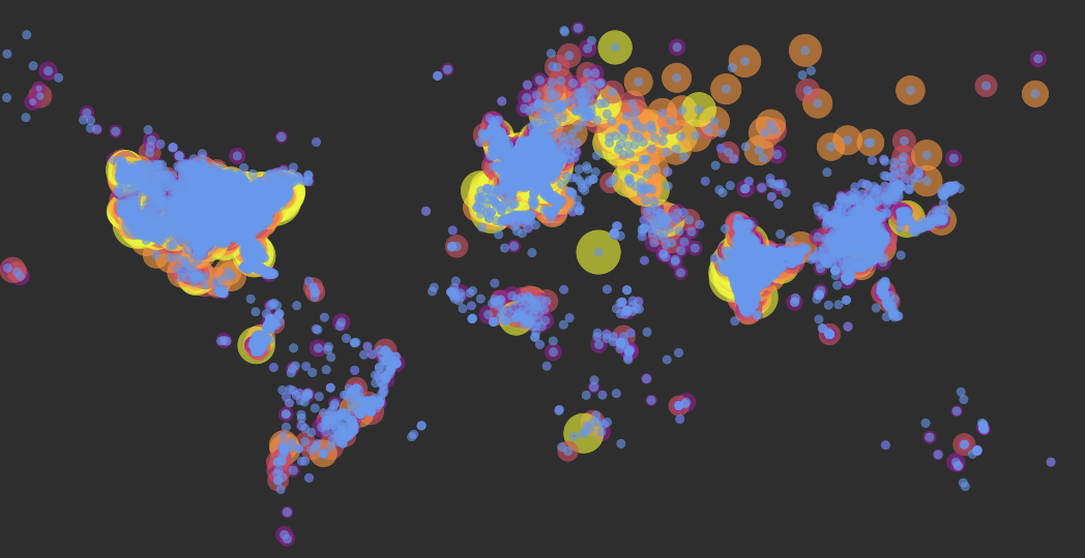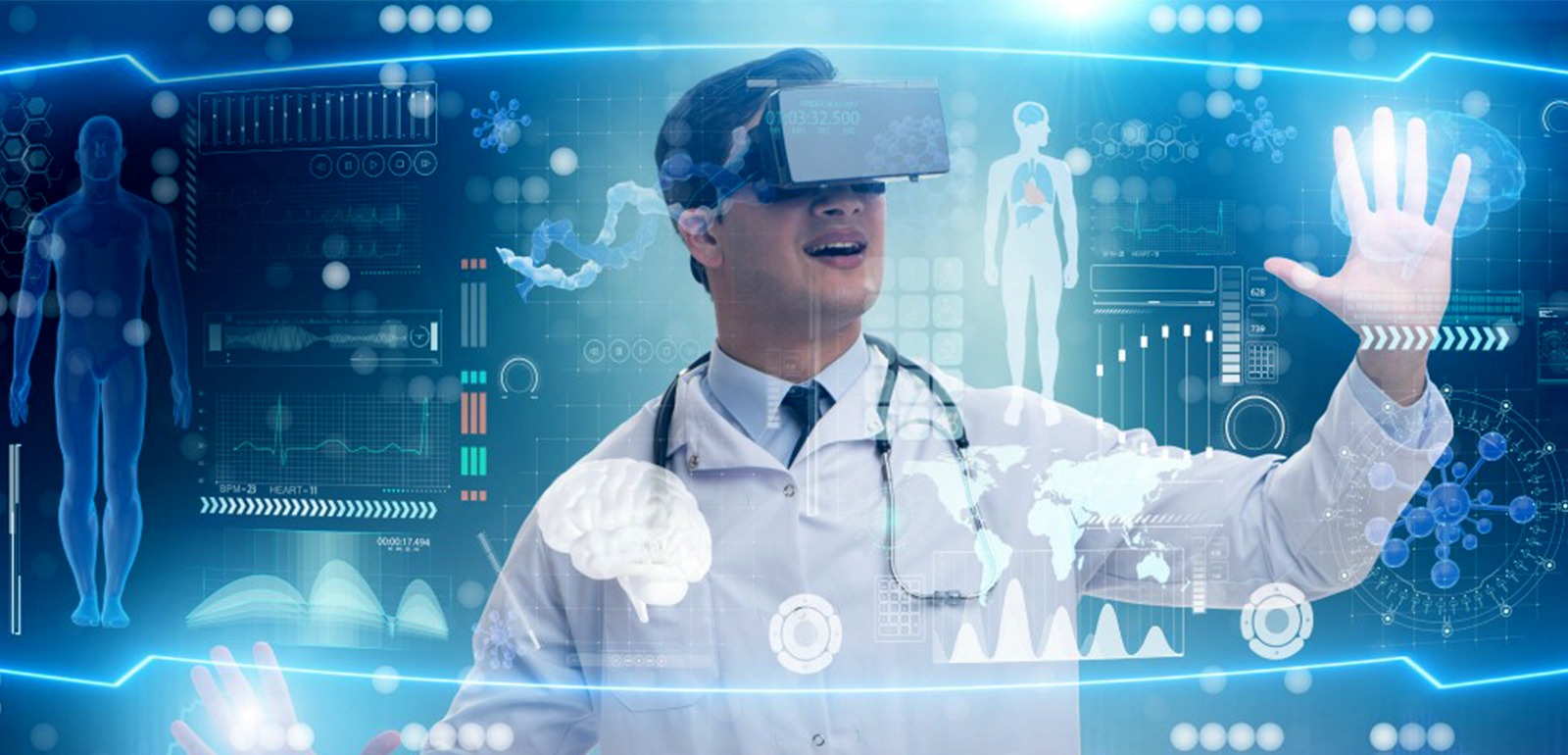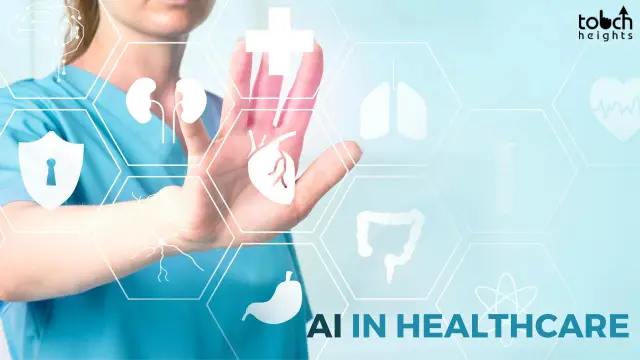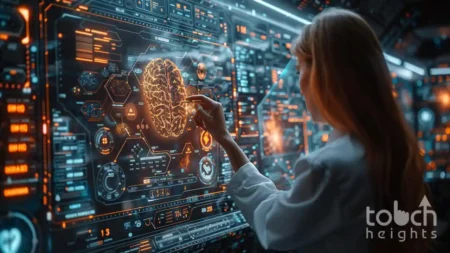As we continue to uncover new applications for artificial intelligence, various sectors throughout the world have been progressively changing. As a result of its ability to efficiently filter and sift through data, track illnesses, and do a lot more, AI has already established itself as a crucial tool in healthcare and research. Here are a few changes brought about by artificial intelligence in the healthcare industry.
Improved Diagnosis
AI can completely change how we do medical diagnoses. Clinicians may utilize a variety of methods, including machine learning, deep learning, and reinforcement learning, to diagnose patients more correctly than ever before.

By utilizing machine learning to identify similarities in data from patients with similar symptoms, AI can speed up the diagnosis process. As a result, without requiring human interpretation or interaction, AI systems may generate predictions about what diagnosis each patient might have based on their symptoms and medical history. The time it can take to diagnose a patient is greatly decreased by this skill.
By utilizing deep learning techniques like image recognition or natural language processing, AI also enables medical professionals to spend more time treating patients and less time investigating new cases. With these methods, machines examine MRI or CT scan pictures and doctor notes before transferring them into electronic health records (EHRs).
Pandemic Equipment
Artificial intelligence became a crucial tool for monitoring and forecasting the COVID-19 pandemic’s progress. By tracking and forecasting how the disease spreads throughout a population, AI aids in policymakers’ understanding of the epidemic’s pace and severity. AI may further use this data to produce graphs and maps that assist in the preparation of supplies, the readiness of medical facilities, and the implementation of safety regulations in certain locations.

AI can not only assist in illness prediction, but also large crowd temperature monitoring and the identification of diseased individuals. Every time you enter a grocery shop during the epidemic in many parts of the world, a camera that scans every customer will automatically check your temperature. When any customer’s temperature is elevated, this system immediately notifies employees. Whether or not they are wearing a face mask, this AI program can even identify the faces of those affected people. The use of AI technology will be crucial in the battle against upcoming pandemics.
Higher Accessibility

Access to healthcare has improved as a result of healthcare professionals using artificial intelligence. Doctors and nurses may now care for a larger number of patients without having to take on extra work thanks to AI. Additionally, they can deliver better treatment and boost productivity and efficiency inside their facilities thanks to these extra resources. As a result, AI presents a special opportunity for enhancing the accessibility and quality of healthcare globally while lowering costs and promoting sustainability.
The Use of AI for Data Analysis
One of the most important advancements in modern medicine is the use of AI in the data processing. Doctors can treat patients more effectively if they can evaluate huge volumes of patient data, including clinical and diagnostic information, and forecast results. Patients may benefit from earlier diagnoses and treatment regimens, or even the possibility of saving lives by identifying conditions before they become life-threatening. AI is crucial for sifting through vast amounts of data, including DNA strands and other types of data while developing biopharmaceutical therapies and medications.

To create a successful mRNA vaccine during the COVID-19 epidemic, researchers had to quickly filter through millions of DNA strands. Medical suppliers like Avantor, who “assist the development and production of life-changing medicine for patients throughout the world,” are needed by research facilities all over the world. However, with the aid of AI technology, doctors could produce viable vaccinations within a year of the pandemic’s commencement. Normally, developing new vaccines involves years of study and testing.
Medical Virtual Reality
Virtual reality is applied in medicine in a variety of contexts. Patients who use it may be able to conquer phobias, anxiety, and post-traumatic stress disorder (PTSD). In addition to treating pain, VR is also used to treat mental illness, dementia, and memory loss.

Several hospitals and medical colleges now use VR during operations. Without any hazards, virtual reality can assist teach surgeons about difficult surgeries. Surgeons utilizing AI and VR in the operating room may make use of autonomous, real-time patient information through glasses that show crucial statistics and allow for hands-free communication during the surgery.
With the help of artificial intelligence tools, the healthcare sector is expanding and getting better every day. We will observe new and enhanced methods of applying this technology to aid patients in receiving better treatment as more healthcare professionals across the world continue to adopt these technologies.
Conclusion:
Whatever the industry, automation aims to save time while improving customer satisfaction and results. With AI, fractal science, and IAPs, such objectives are now attainable.
This technology has the potential to significantly improve patient outcomes in the future. The potential is so great that we have hardly begun to explore it.







